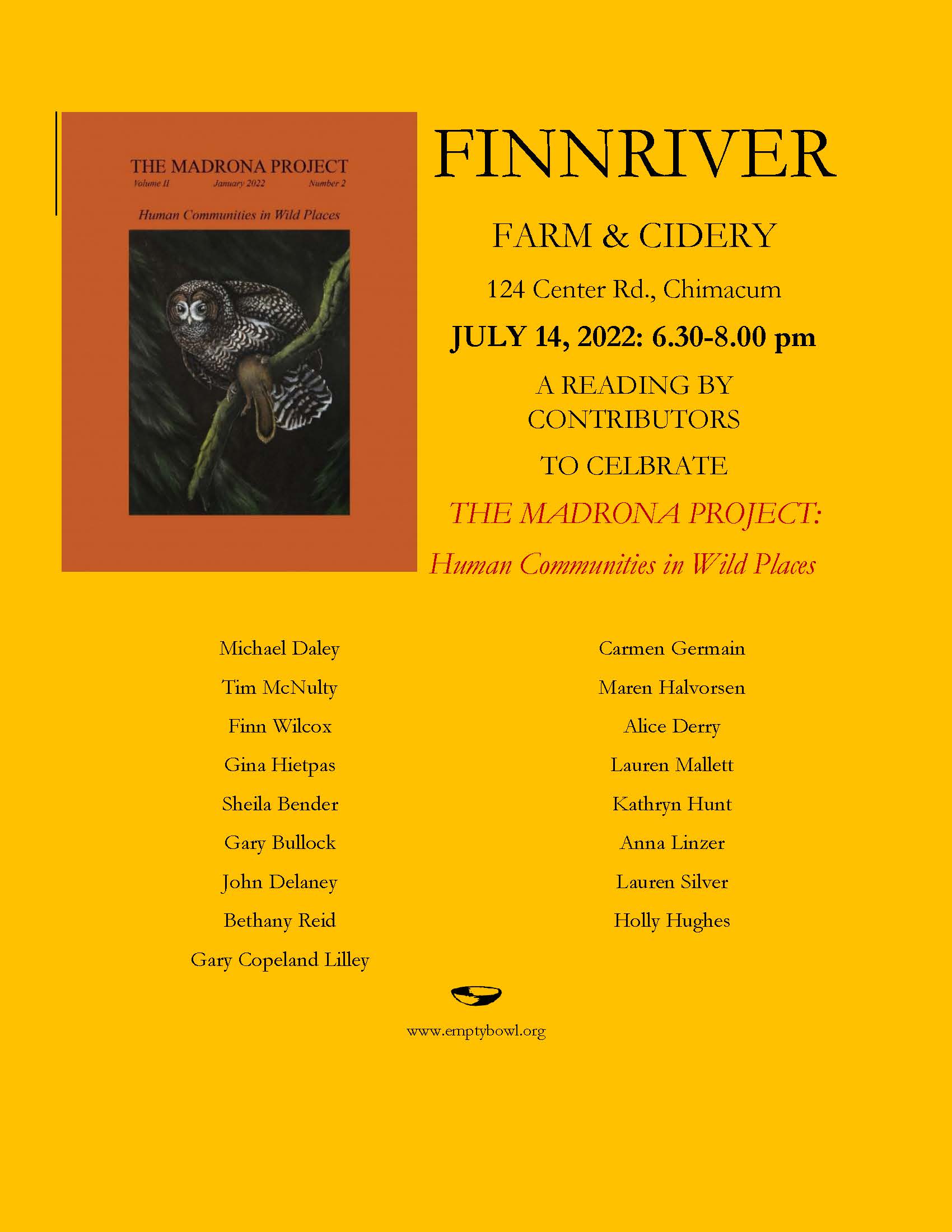Farnaz Fatemi’s Sister Tongue
Just a note to let you know my book review of Fatemi’s Sister Tongue is now posted at EIL.
Just a note to let you know my book review of Fatemi’s Sister Tongue is now posted at EIL.
In a previous life, I was a waitress…before that, a farm girl. I spent a lot of my farm-girl childhood pretending to be a horse named Stormy. I think somewhere in time I was a tree.
In my next life, I’d like to teach a class called “Writing YOUR Memorable Poem,” and this is one of the poems I plan to use.
It’s a weird poem, really, more a surreal little short story. But from the time I first came across it (almost 20 years ago, in The New Yorker), it has stayed with me. Maybe the spell James Tate (1943-2015) weaves has something to do with the repetition. (Dog, for the most startling instance, is repeated 9 times.)
Tate’s Poetry Foundation profile quotes from his interview with The Paris Review: “There is nothing better than [to move the reader deeply]. I love my funny poems, but I’d rather break your heart. And if I can do both in the same poem, that’s the best. If you laughed earlier in the poem, and I bring you close to tears in the end, that’s the best.” That’s exactly what this poem does for me.
The Promotion
I was a dog in my former life, a very good
dog, and, thus, I was promoted to a human being.
I liked being a dog. I worked for a poor farmer
guarding and herding his sheep. Wolves and coyotes
tried to get past me almost every night, and not
once did I lose a sheep. The farmer rewarded me
with good food, food from his table. He may have
been poor, but he ate well. And his children
played with me, when they weren’t in school or
working in the field. I had all the love any dog
could hope for. When I got old, they got a new
dog, and I trained him in the tricks of the trade.
He quickly learned, and the farmer brought me into
the house to live with them. I brought the farmer
his slippers in the morning, as he was getting
old, too. I was dying slowly, a little bit at a
time. The farmer knew this and would bring the
new dog in to visit me from time to time. The
new dog would entertain me with his flips and
flops and nuzzles. And then one morning I just
didn’t get up. They gave me a fine burial down
by the stream under a shade tree. That was the
end of my being a dog. Sometimes I miss it so
I sit by the window and cry. I live in a high-rise
that looks out at a bunch of other high-rises.
At my job I work in a cubicle and barely speak
to anyone all day. This is my reward for being
a good dog. The human wolves don’t even see me.
They fear me not.—James Tate, Return to the City of White Donkeys (HarperCollins, 2004)
So here’s your assignment: who or what were you in a previous life? Was there something you accomplished in that life that landed you here?
So this is a blogpost about rejection. I was talking to a friend — a brilliant poet — and she told me that she had a big set-back earlier in the year. She had submitted several poems to a magazine she felt she had a personal relationship with, and the editor wrote back and said, “Not this time.” She told me that she didn’t know if she would ever write again. I know she was just feeling the August blahs and practicing some hyperbole — or I hope she was.
My goal this year is to get 100 rejections. You heard that right. So far I’ve managed 98 submissions of poetry, essays, or my poetry ms. And I’ve had (I’m guessing) about 30 acceptances. That means I still have at least 32 more submissions to make — and (horrors!) if any of those are accepted, then a few more for good measure.
Someone else gave me advice — and sent an adorable video of a three-year-old to illustrate it — of what might be called “radical acceptance.” The idea is to spend some time each day saying, “I LOVE my house,” “I LOVE my car,” “I LOVE this plant…this kid…this dog…this ratty old couch….” You get the picture. Just to flip that usual mode of noticing what isn’t okay, isn’t good enough, etc.
I love these rejections and how they’re helping me get closer to my goal of 100 rejections this year.
Well, it all sounds rather silly, now that I’m typing it up. I get bogged down by big stuff — and why shouldn’t I? Just like everyone, I often get caught by the little stuff and do some serious whining. On the other hand, sometimes I already practice this. A grown daughter hijacks a day when I really wanted to get other things done, and I decide to embrace it. My husband gets in a fender-bender, and I’m shot through the heart with gratitude that it was just a fender-bender and not anything worse. I get a headache and a voice from somewhere says, “I wonder what that’s asking you to pay attention to?”
little stuff and do some serious whining. On the other hand, sometimes I already practice this. A grown daughter hijacks a day when I really wanted to get other things done, and I decide to embrace it. My husband gets in a fender-bender, and I’m shot through the heart with gratitude that it was just a fender-bender and not anything worse. I get a headache and a voice from somewhere says, “I wonder what that’s asking you to pay attention to?”
I’m of course hugely grateful for the acceptance of two poems from Descant (a good place for you to send, too), and for the copy of Better Than Starbucks (with my poem!) that arrived in today’s mail.
And I’m very very grateful for the poems posted at Escape Into Life for August dog days (and I’ll of course be over-the-moon with gratitude if you check out that feature).
I join good company in reviewing poet Ada Limón’s The Hurting Kind — reviews have appeared on NPR, in The Guardian, and The New York Times. I’m honored that EIL (Escape Into Life) offered me an opportunity to add my voice.
To read the review (and visit the wonderful EIL site), click on this link: https://www.escapeintolife.com/book-reviews/book-review-the-hurting-kind-by-ada-limon/
You can read my 2021 blogpost about Limon’s Bright Dead Things, here.
While I’m here, I also wanted to remind people that I’ll be reading, along with several other Madrona #3 contributors, at FinnRiver Farm & Cidery, 6:30 p.m., July 14. One day soon, I promise, I’ll have a real blogpost for you.

